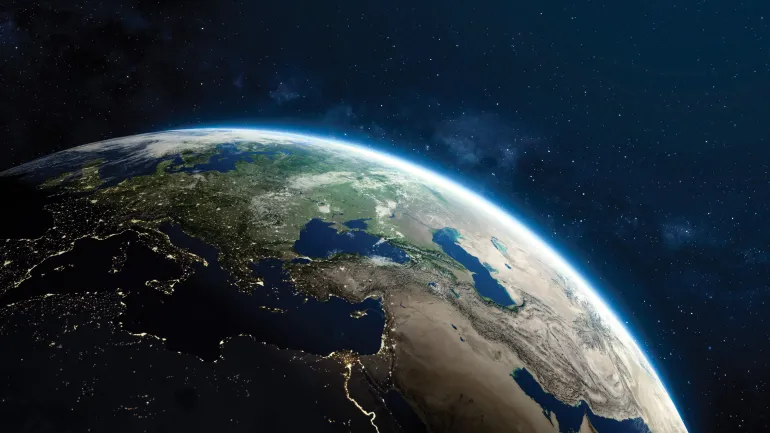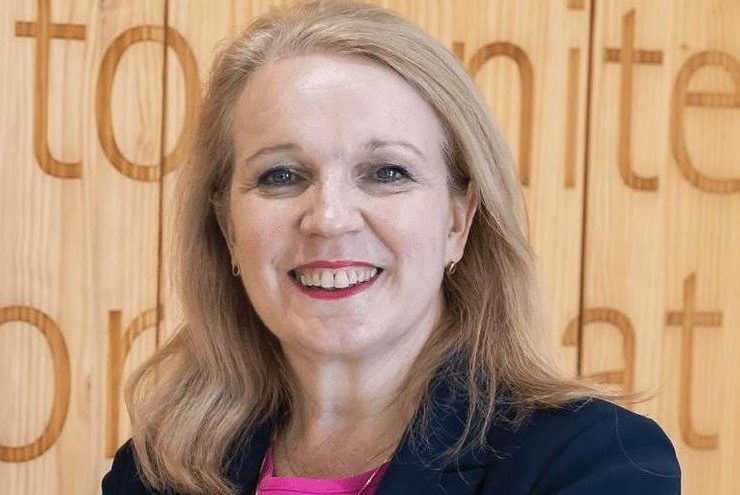Global Trends and Their Impact on Barcelona in 2025

Image: CIDOB
Barcelona Global recently hosted a presentation with two senior researchers from CIDOB, Carme Colomina and Víctor Burguete, who presented insights from CIDOB’s International Note “The World in 2025: Ten Issues That Will Shape the International Agenda.” During the event, they explored key global shifts that are expected to shape the international agenda in the coming years, highlighting the challenges and opportunities these transformations may bring.
The international landscape is undergoing rapid and profound transformations, as highlighted in CIDOB’s report. These shifts, driven by geopolitical fragmentation, economic realignments, and emerging security concerns, are redefining global power structures with significant local impacts.
Geopolitical Fragmentation
One of the major takeaways from the discussion is the increasing fragmentation of global institutions and alliances. With the exit of major international organizations and the imposition of tariffs of the United States of America, countries are seeking alternative partnerships and trade agreements to adapt to new power balances. Notably, China, which traditionally avoided formal trade agreements, is now leveraging indirect trade routes, such as the Mexico-USA NAFTA Agreement, to secure its access to global markets at the face of American restrictions. Meanwhile, Türkiye, Syria and India are emerging as key geopolitical players, asserting their influence regionally.
Economic Shifts and the European Union’s Positioning
The European Union finds itself at a crossroads, facing political fragmentation, budgetary adjustments, and a shift in priorities. EU leadership has increasingly focused on digital competitiveness at the expense of green transition policies; CIDOB considers that overall, there's less political will to tackle climate change. The balancing act between economic stability and sustainability is becoming more complex, requiring strategic investments in innovation and infrastructure.
Furthermore, with traditional trade relationships under pressure, new alliances such as the Mercosur-EU agreement highlight the necessity for economic diversification. The European market is reassessing its approach to trade with the United States and China, as economic policies and regulations become tools of geopolitical influence and is scrambling to prevail during “Trump 2.0”.
Security and Power Dynamics
The blurring of lines between public and private power has become more evident, with corporations playing an increasingly prominent role in international affairs; ego-politics, as CIDOB has termed. The rise of private wealth, coupled with a decline in public funding, is reshaping the nature of governance and global influence, Elon Musk being the prime example.
At the same time, nuclear energy and arms are once again taking centre stage, reflecting a shift in security policies across key global players. As political and economic uncertainties persist, nations are recalibrating their defence strategies, further complicating the already delicate balance of international stability.

Implications for Barcelona
As a globally connected city, Barcelona stands at the crossroads of these transformations. The evolving geopolitical landscape directly affects trade, innovation, and economic policies that shape the city’s future.
- Trade & Business: New trade dynamics pose both opportunities and challenges. The Mercosur-EU agreement presents opportunities for Barcelona’s logistics sector and export economy, reinforcing the city's role as a key Mediterranean trade hub. However, shifting trade relationships between the U.S., China, and Europe could introduce new challenges for local businesses reliant on stable international supply chains.
- Innovation & Sustainability: With the EU prioritising digital competitiveness over green transition efforts, Barcelona must strike a balance between economic development and sustainability. The city’s push for smart city initiatives and clean energy projects could be impacted by shifts in EU funding and policy priorities towards digital transformation.
- Geopolitics & Local Economy: The EU’s focus on defence and economic security could lead to increased investment in technology-driven industries. Barcelona’s growing startup ecosystem and its positioning as a hub for innovation make it well-placed to attract international talent and capital amid these changes. In fact, the Barcelona Supercomputing Center has been selected to host one of the European Union's first seven AI factories. This initiative, backed by nearly €200 million in funding, positions BSC as a central hub for AI development and reinforces Barcelona’s role in the EU's digital transformation strategy.
Conclusion
As the global landscape evolves, Barcelona's ability to adapt and innovate will define its place in the new international order. By leveraging its economic strengths and fostering key partnerships, the city can continue to thrive as a leading global centre in an increasingly complex world. The city's commitment to digital transformation, sustainable development and international connections will be key factors in addressing the global trends that will shape the future, according to the CIDOB report. Maintaining strong connections and forging alliances can help Barcelona remain resilient to ongoing economic and technological change.
Read CIDOB's report here.
If you want to know the latest English news about Barcelona and the people who bring it to life, sign up to our Blog.







